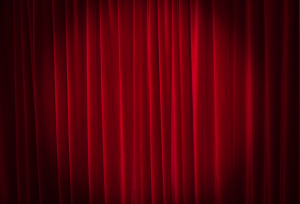>
It was all so cute when it started…
David Yates’ 2009 HARRY POTTER AND THE HALF-BLOOD PRINCE is surprisingly funny at times–surprising, because in all other ways the film was, up to that point, by far the grimmest entry in the series. It’s curiously structured: part romantic comedy, complete with love potions and pining teenagers, and part a baleful story that begins in the immediate aftermath of one tragic death and ends with another, one that will clearly just begin the reign of terror hitting the Potter universe..
The visual transformation that began with Order of the Phoenix continues in Half-Blood Prince: the photography, this time by Bruno Delbonnel (his films include Amelie and Across the Universe), is so desaturated that the last reels are almost a greenish-tinged black and white. Hagrid, the living soul of Hogwarts, is barely present in the film. The magic portraits and friendly ghosts have vanished from the school, and the hallways themselves seem to have closed in on the students. Nicholas Hooper’s score is a subdued version of his music for Phoenix. The violence, when it comes, is sudden and deadly; no longer do the wizards and witches proudly call out their spells as they wield their wands; much of the time they don’t speak at all or mutter the words under their breath. Yates and his team wring a desolately gripping beauty from this apocalyptic world, with its Death-Eater cloud formations and hungry fires; there’s a lovely shot near the end of the students and staff with their wands over their heads, tips glowing, in memorium for their terrible losses.
The cast, while recognizing the increasingly dark sides of their characters, is able to keep the mood bearable. The only major addition for Half-Blood Prince is Jim Broadbent, who does a marvelous turn as the vain, secretly shamed Professor Slughorn. This chapter was Michael Gambon’s great showcase, and he leaves (more or less: like Obi-Wan Kenobi, death doesn’t entirely remove him from the saga) a great presence behind. Daniel Radcliffe is here a legitimate leading man, capturing the heroism, determination and occasional foolhardiness of Harry; he, Emma Watson and Rupert Grint are so practiced in their scenes together (which now have a hormonal charge), they can suggest seismic shifts in their relationships with a shifted shoulder or a glance. Slytherin house points, too, to Tom Felton, who moves past being the school bully to show a boy trying to live up to a level of evil he’d only thought he could imagine.
Steve Kloves, perhaps reenergized by his Order of the Phoenix break, returns to the series with one of his most effective screenplays, expertly traversing the difficult tonal shifts of the material. As usual, the struggle to keep the film down to 153 minutes requires some characters (Lavender Brown) and details (Harry and Dumbledore’s hunt for the horcrux) to get disappointingly short shrift, but the narrative pushes forward commandingly.
Half-Blood Prince was, in a way, the last “Harry Potter movie,” and it carries its own nostalgia. It was the final picture to follow the pattern of the chapters that preceded it: the half-hour of screen time spent getting to Hogwarts, the next hour or so following our leads in their classes and relations with each other, the build to an epic finale. All that would be shaken up, as we were pushed steadily ($934M worldwide) to the franchise’s grand finale.
Harry Potter and the Chamber of Secrets
Harry Potter and the Prisoner of Azkaban
Harry Potter and the Goblet of Fire
Harry Potter and the Order of the Phoenix
Harry Potter and the Half-Blood Prince
Harry Potter and the Deathly Hallows (Part 1)



